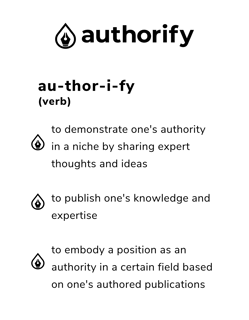5 Ways to Convey Professionalism & Authority through Your Tone

Let’s face it — if you’re going to earn the trust of clients and assist them with any purchase, you have to relate to them through more than words. Factors such as consistency, positivity and professionalism really matter.
Have you ever heard someone’s words, but because of their delivery, you came away with an entirely different message than the one that was intended? Tone is an undeniable part of how people perceive and interact with others, and in any business field, it’s important.

But what is tone, exactly? Consider the way you come across in notes, emails, texts, voicemail and social media platforms. There’s no body language or eye contact for this type of communication, but your audience will still perceive something unwritten — your tone of voice. Tone can be made up of so many things in online communication: word choice, punctuation, use of emojis (or lack thereof), capitalization, even the length of your sentences. The tips below will help you navigate the murky waters of tone so you can feel confident that you are conveying a professional tone.
1. Be professional.
We all understand what being professional means in person – dressing appropriately, being friendly and courteous – but what about in online communication? There are certain things to keep in mind.
Go easy on “textspeak” or other digital shorthand. I’m talking about memes, emojis or shortening words and phrases from “seriously” to “srsly” or “to be honest” to “tbh.” These are the hallmarks of textspeak, but they should be used sparingly when it comes to professional communication, if at all. If you’re texting a client or prospect, take the time to read over the text for typos and errors.
While you should be friendly, authentic, and comfortable with your clients, it’s best to err on the side of caution when you aren’t certain of someone’s sense of humor or fluency in modern lingo.
Stay away from politics, religion, offensive jokes or anything that might come across the “wrong way” to a prospect or client. You don’t want to lose a listing because of a remark that your potential client finds tasteless.
Keep timing in mind. Refrain from texting prospective clients late at night or early in the morning. You don’t know their personal schedules, and no one wants to be woken (or worse, have their kids woken up) in the middle of the night. Even the most politely phrased message may be read in a very different tone when received at the wrong time.
2. Communicate consistently.
In today’s world of online communication and social media, consistency is key. What do I mean by consistency? When you don’t see someone in person, it’s easy to go off their radar – so to speak – as in the old maxim “out of sight, out of mind.” So it’s important to use online communication to your advantage. Reach out to prospects and clients regularly, in a friendly way, to check on them. However, don’t “blast” them with too many messages or “ghost” them with too few — the happy medium is simply reaching out on a consistent basis to let them know they are on your mind.
I like to create a simple “reach out” schedule for this purpose, and stagger out when I’m going to send my contacts a message. Reaching out in a timely, consistent fashion is part of good communication.
3. Aim for the middle of the road.
A friend of mine has a voicemail message I’m always making fun of. Why? Well, it sounds like he’s on a gameshow winning millions of dollars, and it ends with him crowing “HAVE A STUPENDOUS DAY!”
In other words, it’s a little over the top.
How does your voicemail message sound? Have you listened to it lately? It should not be totally dull and monotone for your callers OR unrealistically chirpy. Aim for a warm, friendly tone of voice, and don’t forget to pleasantly thank people for calling you. This goes for when you call them and leave a message, too — or anywhere else you have audio, including your website.
And here’s another trick I’ve learned to maintain that “middle of the road” mood in typed correspondence: watch those exclamation points! It’s great to show excitement once in a while, but too many of them distract from the words you’ve written. This can take away from your sincerity and some may read your tone as pushier or more aggressive than intended.

4. Avoid vague or negative language.
We’re all guilty of being vague sometimes when we’re either in a hurry or don’t have things completely figured out. But trust me, in your online correspondence, the less vague you are, the more prospects and clients will trust you and feel like you are valuing their time. It can be as simple as a realtor using the specific description of “office building” for her listing rather than “property” — don’t be afraid to get specific. I also suggest using statistics or numbers whenever you can –– that is, as long as you trust the source of those numbers.
Now, for negative language. I bet you’re thinking to yourself, “I would never say anything negative or rude to a client!” Well, that isn’t exactly what I mean. Consider this sentence that uses negative language:
I went to the trouble of scheduling the open house for Saturday.
What do you notice about that sentence? Because the word “trouble” is in it, it comes across as negative. No prospective client would want to think of themselves as “trouble” or a burden. We could turn it around and make it more positive by saying something like this:
I’m looking forward to the open house that I scheduled for Saturday.
See the difference? In this sentence the prospective client is valued when working with them is described as being worth the effort.
Don’t get paranoid though — just check over your correspondence with others and ask yourself whether it is worded in a pleasant way.
5. Ask for feedback.
When you’re truly stuck on an email or any kind of correspondence, I always recommend asking colleagues or friends for a little advice. Sometimes, because we know our intentions are positive, we may miss aspects of tone or certain word choices that could read differently to others. Having someone else read over your messaging can shed light on how your message comes across to different members of your audience.
If you want to take things a step further, consider the professional marketing support offered by Authorify. Authorify is a digital marketing solution that helps you share your expertise with clients through professionally branded books, magazines, guides, and other content. Authorify’s done-for-you content means that you always have something of value to share with prospective clients.
Click here to learn more about what Authorify has to offer.




.png)

